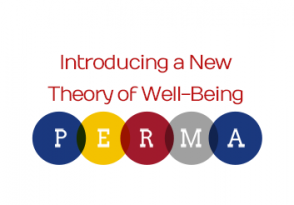by Seligman, Parks, & Steen, 2004
Psychology since World War II has been largely devoted to repairing weakness and understanding suffering. Towards that end, we have made considerable gains. We have a classification of mental illness that allows international collaboration, and through this collaboration we have developed effective psychotherapeutic or pharmacological treatments for 14 major mental disorders. However, while building a strong science and practice of treating mental illness, we largely forgot about everyday well-being. Is the absence of mental illness and suffering sufficient to let individuals and communities flourish? Were all disabling conditions to disappear, what would make life worth living? Those committed to a science of positive psychology can draw on the effective research methods developed to understand and treat mental illness. Results from a new randomized, placebo-controlled study demonstrate that people are happier and less depressed three months after completing exercises targeting positive emotion. The ultimate goal of positive psychology is to make people happier by understanding and building positive emotion, gratification and meaning. Towards this end, we must supplement what we know about treating illness and repairing damage with knowledge about nurturing well-being in individuals and communities.
Keywords: positive psychology; happiness; optimism; meaning; depression; interventions


